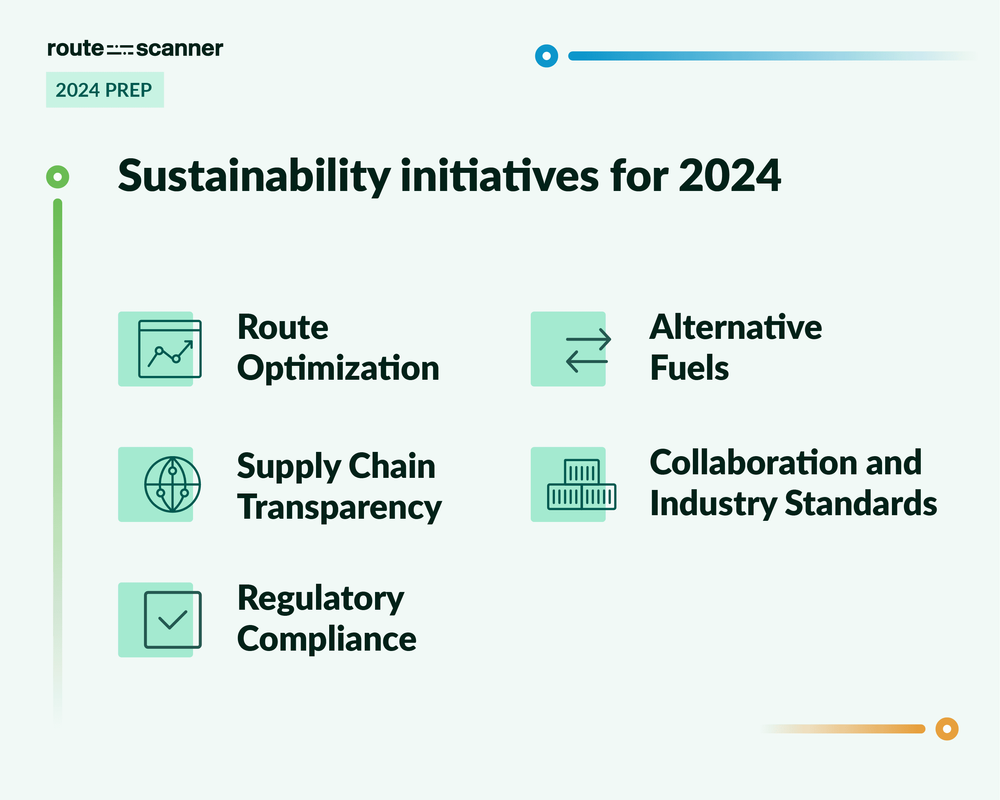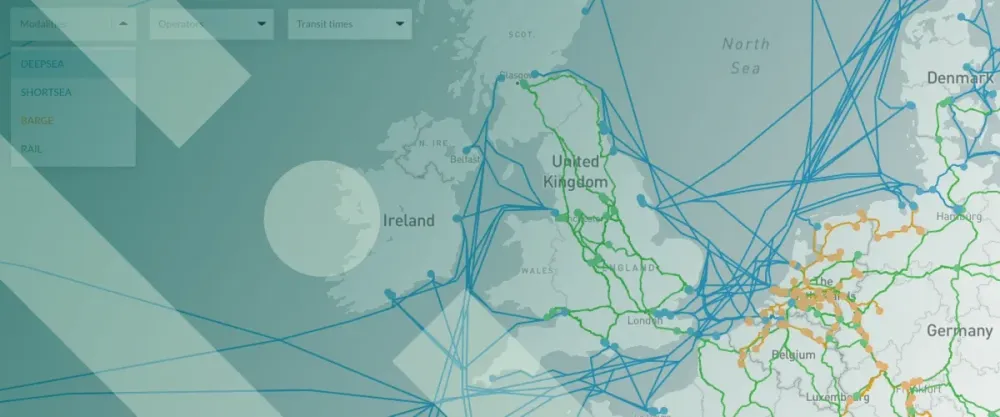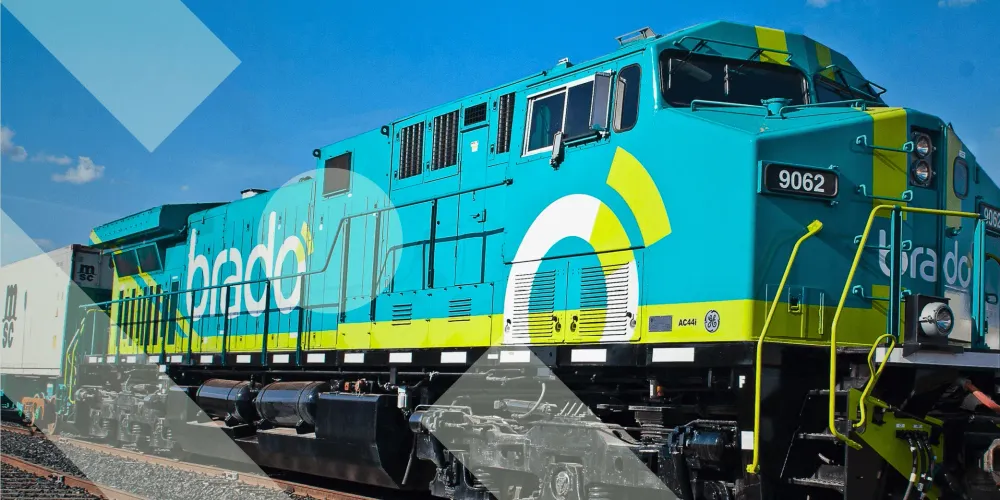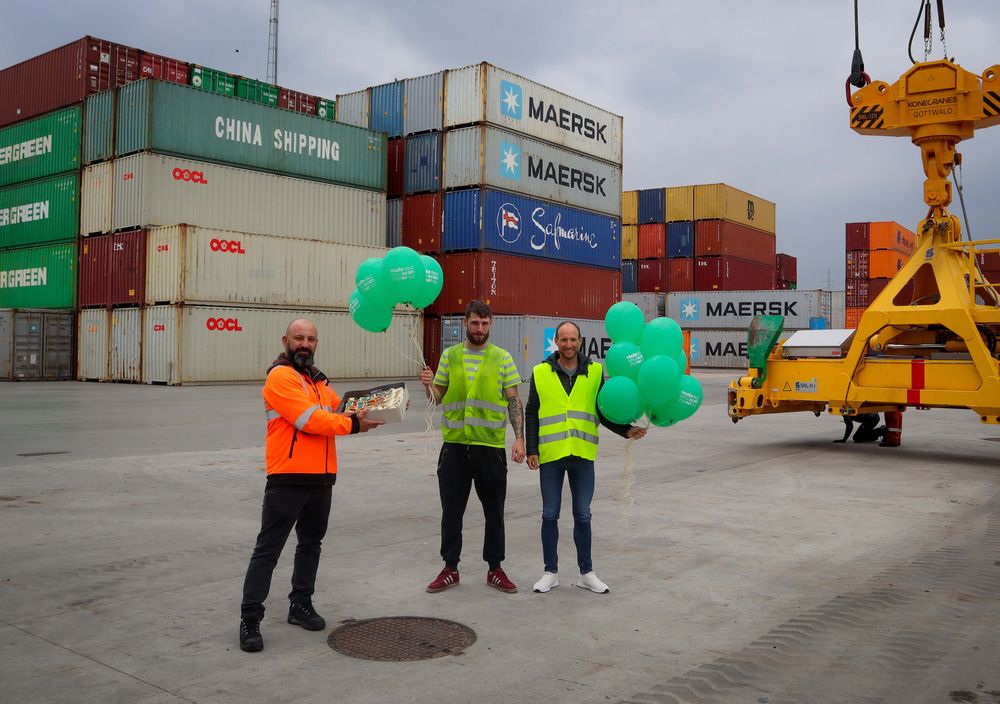
Navigating the Future: Sustainable Logistics in Five Key Dimensions
In an era where environmental consciousness is at the forefront of global concerns, the logistics industry is undergoing a significant transformation. Embracing sustainability has become more than just a trend; it's a necessity. In this blog post, we'll explore five game-changing aspects of sustainable logistics that are shaping the industry's future.
1. Route Optimization: Paving the Way for Efficiency and Sustainability
Efficiency is the cornerstone of sustainable logistics, and route optimization stands out as a key driver. By leveraging cutting-edge technologies, logistics companies are revolutionizing the way they plan their shipments. Advanced route optimization tools consider multiple parameters such as sustainability, transfers, frequency, and lead times, resulting in tailor-made route optimization based on your preferences. As a result, businesses can achieve not only operate more efficiently, but also substantially decrease their carbon footprint at the same time.
2. Alternative Fuels: A Green Drive Toward a Sustainable Future
Our commitment to sustainability extends beyond optimized routes. By teaming up with GoodShipping, we provide our clients with next steps after emission calculation and route optimization. This initiative aligns with our dedication to reducing carbon emissions through insetting (i.e., exchanging fossil fuels for biofuels). If you’re interested in reading more on this topic, you can download our joint whitepaper here, where we dive into how you can reduce your scope 3 emissions and prepare yourself for 2024.
3. Supply Chain Transparency: Shedding Light on Transparent Schedule Information and Emissions per Route
In an age where consumers seek to make informed choices, supply chain transparency has become a crucial aspect of sustainable logistics. The spotlight on supply chain transparency extends beyond mere visibility—it delves deep into the specifics of scheduling and emissions. Transparent scheduling, a critical element in our commitment to eco-friendly practices, involves revealing intricate details about the carbon footprint associated with each route. This commitment to transparent scheduling ensures that our stakeholders have access to detailed information about schedules and its environmental implications, fostering a culture of responsibility and contributing to the larger goal of minimizing our carbon footprint.
4. Collaboration and Industry Standards: Uniting for a Greener Tomorrow
Sustainability knows no boundaries, and industry-wide collaboration is essential. Logistics companies are increasingly coming together to share best practices, insights, and innovations. By establishing industry standards, we can ensure a collective commitment to sustainable practices. Through collaboration, we aim to amplify our impact, driving positive change that transcends individual companies and extends to the entire logistics ecosystem.
5. Regulatory Compliance: Navigating the Green Regulatory Landscape
Governments and regulatory bodies are stepping up efforts to address environmental concerns. From emissions standards to waste management regulations, the logistics industry is facing a complex and evolving landscape of compliance requirements. Embracing these regulations isn't just a legal necessity—it's an opportunity to be at the forefront of sustainable practices. By aligning with and exceeding regulatory expectations, logistics companies can demonstrate leadership in environmental control.
In conclusion, sustainable logistics is a multifaceted journey that requires commitment, innovation, and collaboration. Through route optimization, alternative fuels, transparency, collaboration, and regulatory compliance, the industry is not just adapting to change but driving it. By embracing these pillars, we are navigating toward a future where logistics and sustainability seamlessly coexist, ensuring a greener, more efficient, and responsible supply chain.
More from the blog

ROUTESCANNER.COM: THE INTERMODAL PLATFORM YOU DON’T WANT TO SHARE WITH YOUR COMPETITORS

Brado Logística expands borders and markets via the Routescanner platform

100th operator connects to Routescanner
Stay in the loop
Discover how our network of shippers, forwarders, operators and terminals is growing.
Subscribe to our updates